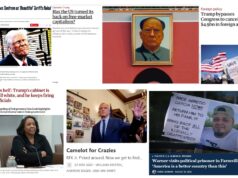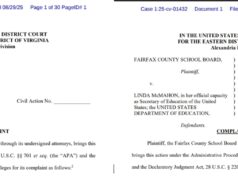This coming Tuesday, our grotesque President is scheduled to go to Phoenix for one of his campaign-style (I was tempted to say Nuremberg-style) rallies.
President Trump has already indicated that he’s contemplating issuing a pardon for Joe Arpaio, former sheriff of Maricopa County, Arizona. Arpaio was convicted of criminal contempt, connected with his refusal to cease violating the rights of Latino citizens, whom he terrorized for years. And not surprisingly, this notorious persecutor of vulnerable minorities was a political ally of Trump’s during the campaign.
The mayor of Phoenix, Greg Stanton, who has publicly (and apparently futilely) requested that Trump cancel the plans for the rally, worries that Trump will use the Tuesday rally to announce a pardon for Arpaio, who might otherwise serve up to half a year in prison. Mayor Stanton connects such a pardon with the President’s widely-condemned response to the disturbing events in Charlottesville last Saturday.
Pardoning Arpaio would indeed reinforce the President’s alliance with bigotry, and his ripping apart our diverse nation and thus, as Mayor Stanton fears, stir up more conflict.
But it would also do something else.
Putting such a pardon together with the news of several weeks ago about Trump’s inquiring into his pardoning powers creates a clear image of a President lacking the barest respect for that basic American value: the rule of law.
That inquiry of Trump’s about his pardoning power was disclosed in the context of a continuing cascade of news about the Trump/Russia investigation, in which Trump’s son, his son-in-law, and his first national security advisor are among those entangled.
Trump evidently was also interested in knowing whether he could pardon himself.
People could reasonably suspect that the White House disclosure of Trump’s inquiries into his pardoning power– was a threat issued in the guise of an inquiry. The substance of the suspected threat might be stated:
“I can use my pardoning power to assure that my allies and I are above the law, and beyond its reach.”
It is true that the Constitution grants the President the pardoning power, and imposes no limits upon it. Nonetheless, there is the concept of “abuse of power,” and the “abuse of power” is recognized as a reason to remove the president from office.
The suspicion that Trump’s inquiry constituted a lawless threat to undercut the legal process, as his campaign is investigated for possible criminality, would only be confirmed if Trump issues a pardon for his ally Arpaio.
The two acts together — the pardon for an abuser of power, finally brought to justice, and the threat to nullify any legal effort to hold the Trump gang accountable for crimes — paint a picture of a president who looks at the Constitution not as a guide to his responsibilities but an arsenal of weapons to be used in his quest for unchecked dominance. And in particular, to use the pardon power to place his allies (and perhaps himself) above the law.
If that isn’t an abuse of power, what would be?
So, in case we need any more basis for impeaching this president, that would be provided by Trump’s making such an announcement about Arpaio in Phoenix this coming Tuesday.














